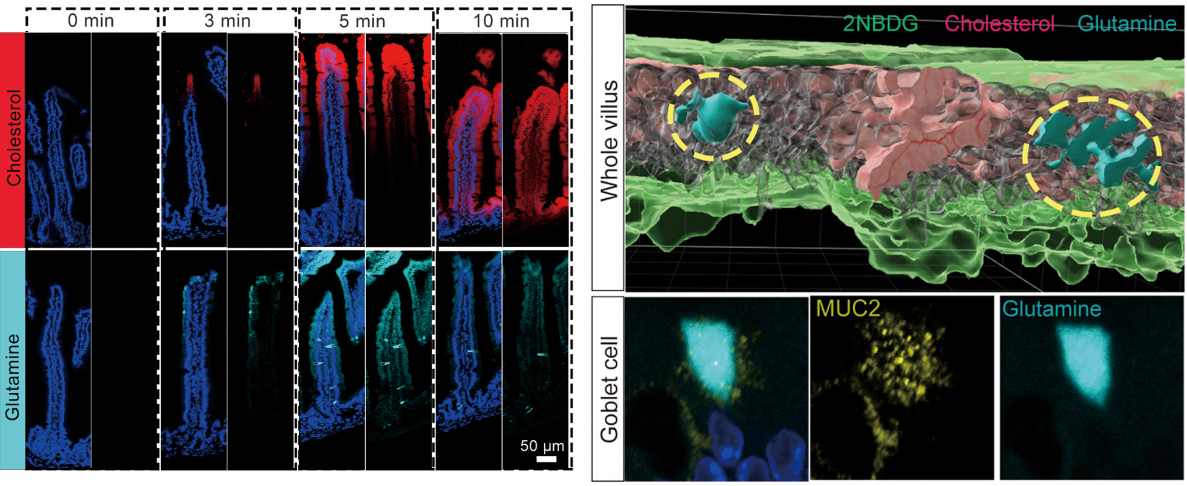You might think that eating is just a daily routine, but it's actually a vital process that keeps our bodies running smoothly. Our small intestine is like a busy factory that absorbs nutrients from the food we eat, and it's also connected to other organs like the liver and fat cells that help with metabolism.
But did you know that our small intestine has a special way of getting nutrients? It's like a two-way street, where nutrients come in from both the food we eat and the bloodstream. When this balance is disrupted, it can lead to problems like obesity, heart disease, and even damage to our immune system.
A collaborative group of scientists from Wang Di (Zhejiang University School of Medicine), Liu Wanlu (Zhejiang University-University of Edinburgh Institute), and Liu Jia (Shanghai Institute of Materia Medica, CAS) has made a groundbreaking discovery about how our small intestine works. They found that the way we eat affects how our small intestine absorbs nutrients, and that different types of nutrients are absorbed in different ways. For example, fats are mainly absorbed in the top part of the small intestine, while a certain type of amino acid is absorbed in specific cells.

They also found that when we don't eat regularly, our small intestine can become imbalanced, leading to problems like heart disease. If we don't eat breakfast, it can be especially harmful.
So, what can we do? Eating a balanced diet and having regular meals is crucial for maintaining a healthy gut and preventing diseases. And who knows, maybe skipping breakfast isn't such a good idea after all!

Acknowledgments
Professor Wang Di from Zhejiang University School of Medicine and Sir Run Run Shaw Hospital and Professor Liu Wanlu from the Zhejiang University-Edinburgh University Joint Institute are the corresponding authors of this paper. Dr. Zhang Jian, a postdoctoral fellow at Zhejiang University School of Medicine/Liangzhu Laboratory, PhD student Tian Ruonan from the Zhejiang University-Edinburgh University Joint Institute, and Dr. Liu Jia and Dr. Yuan Jie from the Shanghai Institute of Materia Medica are the co-first authors. The study was supported by the National Natural Science Foundation of China, the Zhejiang Provincial Natural Science Foundation, and other major projects.







